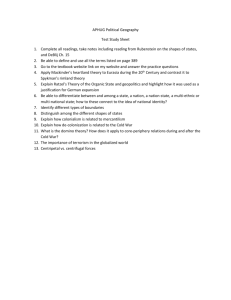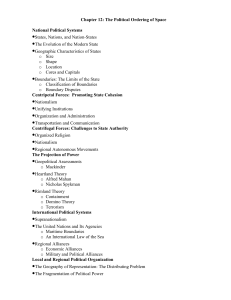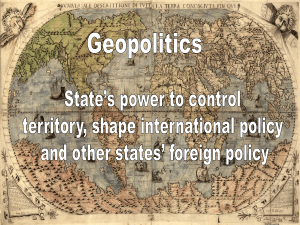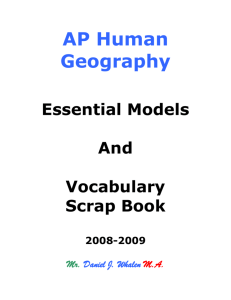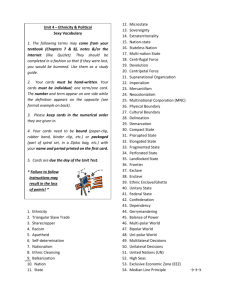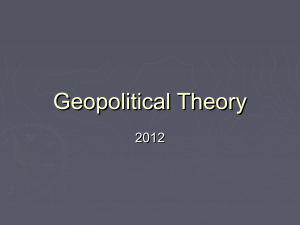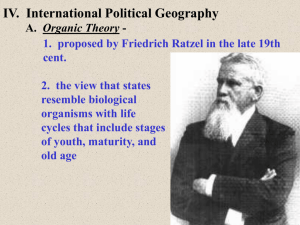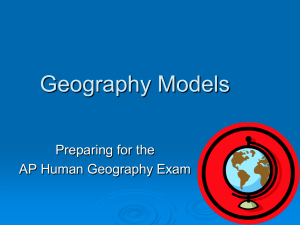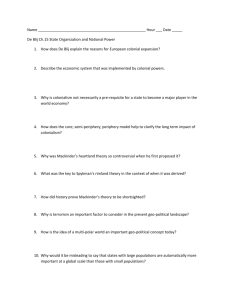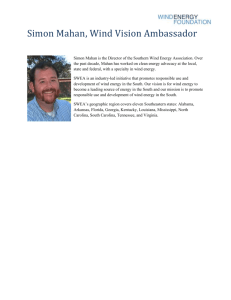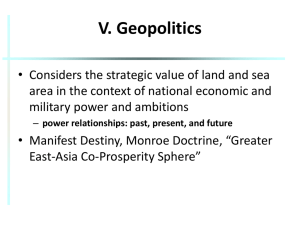Nicholas J. Spykman
advertisement
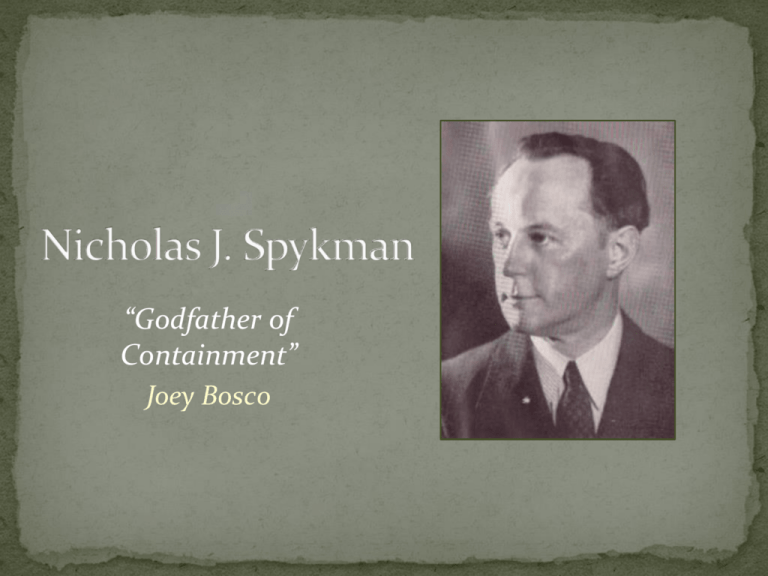
“Godfather of Containment” Joey Bosco Born in the Netherlands in 1893. Immigrated to the United States to attend the University of California, Berkeley (Class of ‘23). Founded the Institute of International Studies at Yale in 1936. Taught at Yale until he died at age 49. Henry R. Luce Hall, an area of the Institute of International Studies Adopts and changes the ideas of Halford Mackinder and Alfred Mahan. Mackinder’s theory, Heartland Theory, describes the Heartland in the World Island as the key to world dominance. Mahan’s theory, based on his experience as a naval commander, stresses the importance of controlling coastal regions. His comprehensive ideas draw largely from different battles of naval history. Spykman sought to combine Mackinder and Mahan’s theories. Mackinder didn’t take into account: Russia’s future as an agrarian society. The Industrial Revolution (Western Europe). Russia’s borders (ice, mountains, temperatures). The ocean. Mahan didn’t take into account: Everything else. The key to controlling the World Island (and therefore the world) is the coast of Eurasia. Rimland contains most of the world’s people and has access to land and sea. Split into three regions: European Coast Middle Eastern Desert Asiatic Monsoon Further separated into Indian and Chinese Based more on Mahan’s theory about sea access. Originally used during World War II. Later used to explain/justify containment. Criticized for centering too much on the Eastern Hemisphere. Doesn’t account for modern technology such as nuclear weapons. Self-fulfilling prophecy. -Side Note- Not in textbook; consult Chapter 8 RIMLAND ANALYSES Sempa, Francis. "Spykman's World." American Diplomacy. April 1, 2006. Accessed September 19, 2015. Bordonaro, Federico. "Rediscovering Spykman." Exploring Geopolitics. May 1, 2009. Accessed September 19, 2015. Sempa, Francis. "Nicholas Spykman and the Struggle for the Asiatic Mediterranean." The Diplomat. January 9, 2015. Accessed September 19, 2015.
